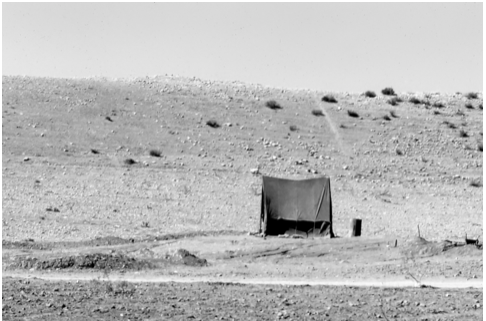
I Ran over My iPad, My Mother Died, Then the Shit Got Real:
An illustrated autobiographical tragicomic novella in 10 chapters
by Steve Eilenberg
Part 8: The Policy
Months before her knee surgery, Mary told me about a life insurance policy she maintained for decades. It was ridiculous. For a $100,000 death benefit, she was paying around $12,000 dollars a year, a steep premium due to her age and history of breast cancer. She intended the money for K, “to help jump start her life” as an underpaid, part-time, non-credentialed Hebrew school teacher. Mary was worried that David might not give the money to K. I asked Mary if K was the named beneficiary and she thought so, but wasn’t sure. She just wanted me to “be aware”. I asked her where the policy was and she thought in a file cabinet in David’s office.
Marie and I arrived at 928 late morning. I tried to give David a hug. His arms remained limp by his side, and he turned away, saying nothing. I reintroduced myself to Rabbi Israel Dressner, with whom I took a pilgrimage to Israel in 1973. He had aged greatly, as had all of us. I don’t mean great, just a lot. K promised to organize the memorial, to be held the next day. This is when we learned about Mary’s wish for cremation and wondered if David would accept that, it not being Jewish custom.
 Living large in my tent home in the Negev, Israel (1973). Temperature that day peaked at 127F. (Really)
Living large in my tent home in the Negev, Israel (1973). Temperature that day peaked at 127F. (Really)
We reconnected with Susan, Sarah and Aaron and snuck into the basement. There we were, the M camp, the day after M died, staring at 8 long and tall file cabinets. It was daunting. We were also on the lookout for Mary’s social security number and personal address book. We wanted to alert the dead husband club of her passing. Using an iPhone camera, we photographed pages from Mary’s address book and the life insurance policy, Mission Impossible style. Ignored and unwanted, we left by noon. The memorial was the next day, on Monday. Marie and I were scheduled to work then and did not want to be in the D camp any longer than necessary. Knowing I would be characterized as the “kill and blow” son was uncomfortable, but not nearly as bad as being there.
Marie wrote the following remembrance of Mary and gave it to K for the memorial. We don’t know if it was read there or not.
“The English phrase, “in-law,” and especially, the term “mother-in-law” can be neutral, descriptive terms, although in English, it often seems to carry a negative subtext and, at times, a comedic overlay. I’ve come to prefer the French versions, with in-laws becoming beaux-parents (literally “handsome parents”), and mothers-in-law transformed into “belle-mères,” or beautiful mothers. Perhaps this phrasing doesn’t prevent French comedians from skewering their in-laws in jest, but at least this terminology seems more celebratory of the possibilities of a union with another family.
When Steve and I were married in St. Louis, going on 24 years ago, our officiating rabbi, with a background in marriage and family counseling, required us to undergo several pre-wedding counseling sessions with him. In these meetings, we discussed family dynamics, birth order, and related topics, and he emphasized that when you marry, you don’t just marry one person, but an entire family, which would have ongoing ramifications for our married life. As a 29 year old, I didn’t fully appreciate the truth of what he said, but I’ve come to realize that he was right on.
And, in that regard, I’ve been most fortunate. Although “mothers-in-law” seem to occupy the same demonized strata in literature and popular culture as “step-mothers,” for me, that wasn’t the case. On the contrary, Mary was open, warm-hearted, welcoming and interested in the minutia of our lives, imploring us for details of what we were doing as we caught up on the phone between visits.
When we did visit, the welcome was always open-armed, her face lit up, calling out “Hello-hello,” the extra hello presumably for emphasis or maybe just two hellos being better than one, especially if the greeting was taking place after a long separation, as it often was for us, living on the West Coast. No visit, of any length, was ever long enough for Mary. We were fortunate to have some extended stays with Mary and David when they sheltered with us out West, escaping the cold East coast winters.
In some ways, Mary, being naturally a very doting and nurturing woman, nurse and mother, was more “motherly” to me than my own, reserved, quiet, loving but very Japanese mother, and so for me, ultimately became a surrogate mother figure.
And like my own mother, she frustrated us at times, especially when it came to making decisions. She was a redhead, and although never displayed any stereotypical hotheadedness, she had decided opinions and phobias and legendary stubbornness. The nursery rhythm “Mary, Mary, quite contrary…” seemed at times quite apt.
It’s always hard to lose someone you love, but especially so, when the loss is unexpected and when you still harbor hopes or dreams for them. In our case, we hoped Mary would have newfound mobility and increased possibilities for her remaining years. Steve and I hoped she could one day share the magnificent vistas we now enjoy in our adopted home of Sedona, Arizona, which we first discovered with Mary and David in the 1990s. Instead, we now must bridge the gap formed by her absence and together form the “glue” she provided to this family for so many years.
Mary, you will always preferentially be “ma belle-mère.”
Monday morning of the memorial, the sting of David’s bilious slings would keep Sarah home, with Aaron and Chopstick by her side. Susan was more conflicted, but intended to travel from Staten Island to 928 for the memorial. Aaron, knowing Susan was out of sorts, set up her iPhone on his iCloud account to realtime map locate her, in case of ‘extreme disorientation’. Susan pushed off in the morning and finding her Honda Accord’s gas tank near empty, set out in search of a filling station. Sarah and Aaron, not meaning to hover, watched a realtime map of Susan and her iPhone proceeding on a chaotic cross-island journey, resembling an active game of pinball. Susan never made it to the memorial, but eventually did get gas; Sarah and Aaron eventually rescued Susan. Just before the memorial, K called Susan and for some unknown reason, told her that Chad was standing next to her. Susan, still roiled from the attempted impersonation and scapular ploy, referred to him as “that fuckhead!” K, fearing that Chad overheard this, convulsed and hung up. Susan’s proclamation was monumental, as she has never been known to utter anything more severe than “oh dear!” .
Mary was cremated. It simplified arrangements, as there would be no formal funeral, grave-site or a headstone to place a year hence. She was reduced to grayish ashes and a “like new” prosthetic knee. The ashes were in a box and urn shopping didn’t seem appropriate. Days later, Sarah received a second phone call from the funeral home. It seems payment had not been arranged and phone calls to 928 went unanswered. These calls were followed by a respectful visit to the house, where the doorbell was ignored. Hearing this, we wondered if since David didn’t consent to Mary’s end of life decision, he thought he didn’t have to pay for the cremation. The final message from the funeral home was loud and clear: “no money, no ashes”. Much to our surprise, several days later, the bill was paid and Aaron went to pick up and deliver ‘the box’ to him. Aaron did so with no fanfare. When David heard Aaron at the door, he barked at him to hold on and then at K to detain him. David wanted to give him a piece of his mind. I imagine something like “I treated you like a son…and you stab me in the back!” Aaron, wanting and deserving none of it, headed for the car with David in hot pursuit with his sporty 3-wheeled rollator. Aaron won the race and drove home. K later told me that David was crushed by this missed opportunity.
Over the next few weeks, I had a handful of conversations with K. She told me how everyone loved the memorial bagels she bought and how nice the house looked. She wouldn’t divulge many details of the service and hadn’t taken me up on our offer to pay for housecleaning services. There weren’t many details forthcoming regarding the memorial, but she did make a point of telling me how angry she was that Susan missed the service .
I became fixated on Mary’s life insurance policy, it being a surrogate for war between good and evil and between M and D. I made a few calls to the insurance company and learned that there was no named beneficiary. The money would pass to David. Mary must have told him her wishes and she wanted me to remind him. At 92, David didn’t really needed the money, but he undoubtedly felt that K would make a mess of it, perhaps never cashing the check, losing it, or keeping the money in a brown lunch bag in the trunk of her car. Paying off debts and banking the rest was unlikely. We appointed Susan the mediator and she spoke to K about the policy. K’s response was unanticipated. She unraveled and begged Susan to drop the subject, saying over and over: “Drop it! It doesn’t matter…just leave it alone”. This was a complete shock, as it seemed unlikely she had two nickels to rub together. Given her insistence, Susan respected her wishes and we assumed the affairs would sort themselves out soon enough.
My final contact with D came a few weeks later. From work, I called K’s iPhone. Habitually rather hapless, she was huddled in her Honda Accord, in the driveway at 928. She had been encamped there for a while. She had locked herself out of the house again and was trying to keep from freezing on a particularly cold winter afternoon. David, either sleeping or ignoring the doorbell, eventually peered outside, while we were still conversing. From what I could hear, the conversation went like this:
David: “Karrent! What are you doinguh out thereuh?” (his pronunciations were a combination of lifelong idiosyncratic pronunciations, Northern New Jersey dialect, emotion and age)
K: “I got locked out.”
David: “Againuh?” “Who are you talking tooh?”
K: “Steven…”
‘long pause’
K to me: “Hold on, Steven, he’s coming down the stairs”. (then really long pause).
David: “Ask him who was in my closetuh.”
K to me: “Did you hear that?”
Me: (long pause) “yeah…”
David: “Someone broke into my closetuh”.
Me: “Tell him we did”.
K to me: “Who’s we?”
Me: “Me, Sarah and Aaron?”
K to me: “Why?”
Me to K: “When Mary was dying, we went looking for his guns. We wanted them out of the house. That’s all. It was a really emotional time and we thought it best there were no guns”.
K to David: “They were looking for your guns.”
David: “Whyuh?”
K to David: “They were worried about you”.
David: (long pause). David to me: “Ask him where’s my Leicauh camruhhh. The Leicauh’s goneuh!”
K to me: “Did you hear that?”
Me to K: “Yeah”.
Me to myself: “Not only did I help orchestrate killing his wife, but now he thinks I stole his Leica! What a piece of garbage he must think me!”
Me directed to David: “Tell him it must be there. In his closet somewhere”.
His closet, like his office and his tool room, was always in shambles and terminal disarray.
David directed to me: “It’s not thereuh! Where is my camruhhh?”
Me to K: “Oh, god! This isn’t good. K, if it’s not there, it must be somewhere else in the house. Tell him to look in the closet again. It’s gotta be there…I think I saw some empty Leica boxes in the middle examination room; maybe it’s in the office?”.
(David ambled back up the stairs and disappeared into the house. K and I talked a bit longer and she took the opportunity to get inside before he locked her out.
Me to K: “Did he find the camera yet?”
K to me: “I don’t know…”. (she preferred turmoil over resolution)
 This is the Leica model in question.
This is the Leica model in question.
I never heard about the Leica again, which means he found it.
coming soon! Part 9: Your Father is Dying

Hi Steve,
Your tragicomedy has the bones for a play or mini-series, just needs more dialogue. There should be a required reading program with stories like this for 50+ year olds with aging parents. No good deed goes unpunished in life. Looking forward to more of your story.
Pat
Now I see why you travel so much!